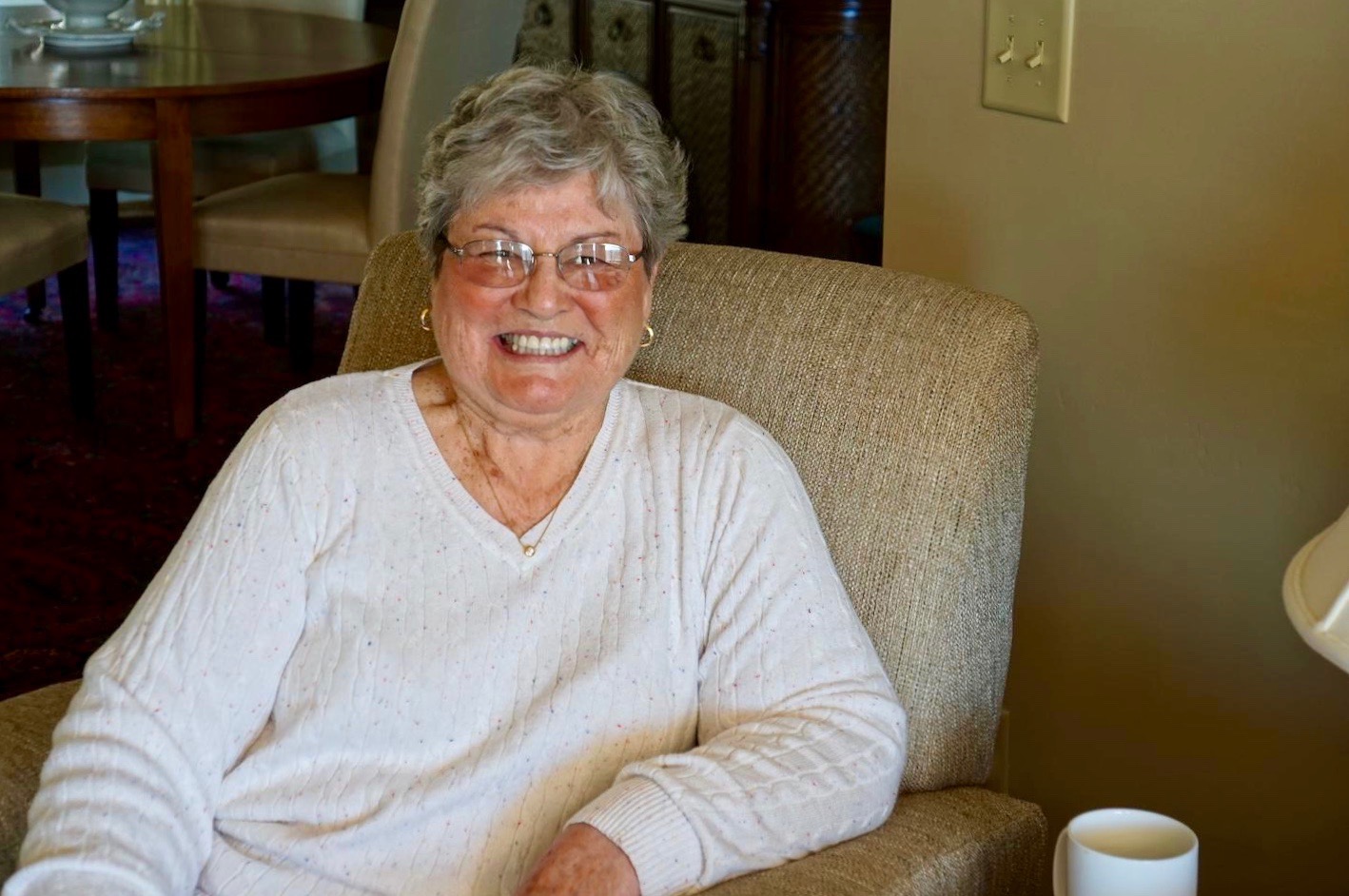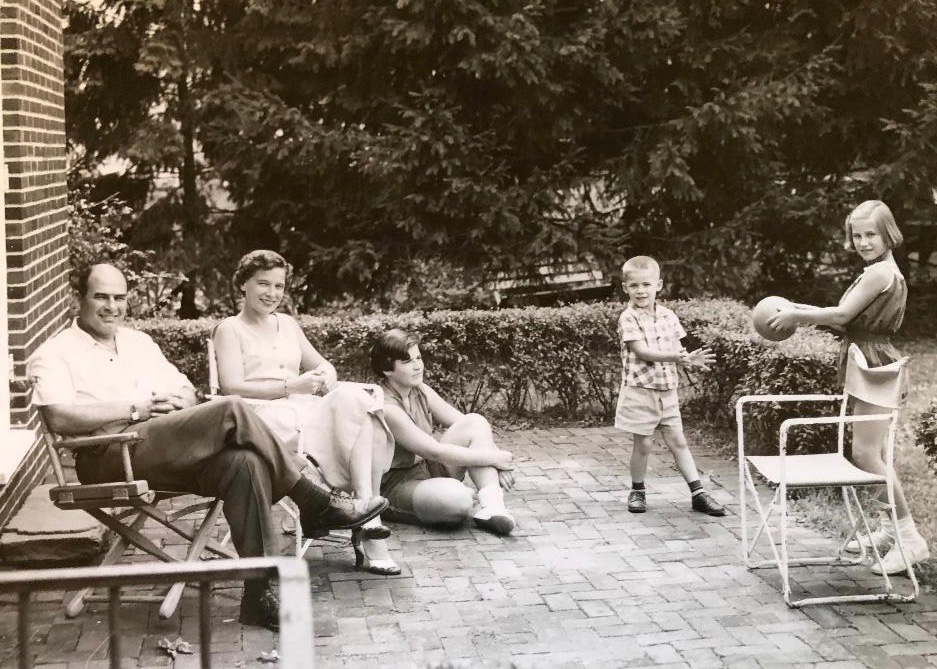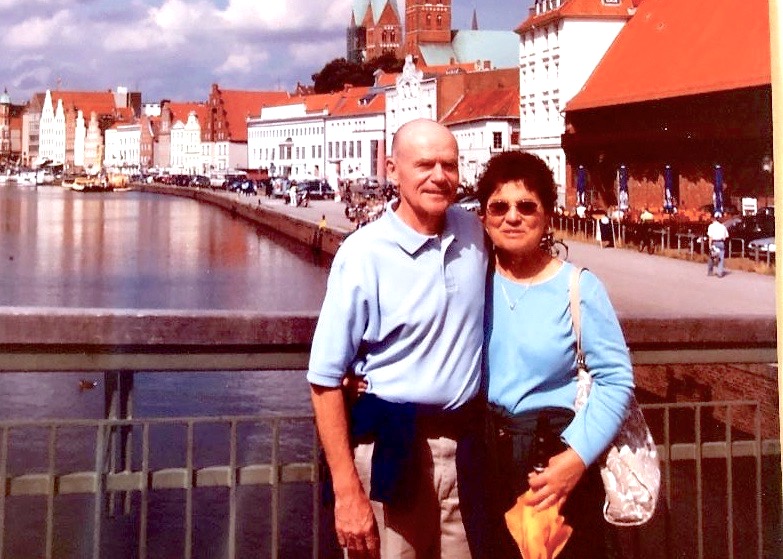
The first time I met Carol Johnson, I fell in love with her. There was something about her . . . her beaming smile, her inner glow, her quiet sense of herself . . . that drew me to her. It wasn’t until months later that I began to hear her story. Carol had been an atheist most of her life. How does any person come from that background and still find Christ? Carol and I recently spent almost three hours together talking about her story. We laughed, and we cried. We came into the presence of God together. And her story of coming to faith truly is amazing.
Carol’s father was agnostic

Carol’s father was a good man. He was a naval officer in World War II. After he retired from the Navy, he became a high school and college football coach. He was a good man, an ethical man, and a moral man. He was also an intellectual who approached life from a secular viewpoint. Her father believed that religion was for people who were needy and not very smart.
Although Carol’s mother was a believer and attended church, the children were given the choice of which path to take – the secular or the religious. Carol was drawn to her father’s ideology, followed in his footsteps, and even took it further to the understanding there was no God. Period. Carol became an atheist.
Several things helped her cement that belief. First was the encouragement and praise she received from her father for her belief structure. She explains, “His praise made me prideful. I knew that I was smarter than everyone because I didn’t believe. I reveled in his praise.”

Second was Carol’s majoring in science in college which seemed to confirm her belief that God didn’t existed. She began reading the works of Nietzsche and George Bernard Shaw, which confirmed her belief that man is superman, and therefore, god exists only within us. She saw herself as “a superior being who became ego-driven, arrogant, and prideful of her own intellect.”
Living as an atheist
When Carol first began dating her husband-to-be Jim, her position on faith became part of their relationship. Although Jim had been baptized, he was not interested in matters of faith. After they were married, they adopted a secular lifestyle. They had a nice life and a good family.
As a secular family, they raised their two sons in that structure. When her older son was in third grade, Carol became incensed when he came home and told her that he had to attend Bible class at school. After she lost the battle to keep her sons out of the class with the school, Carol intellectually approached the problem. She realized that the Bible and issues of faith were part of the language of the culture her sons would have to navigate. She decided to be broad-minded about it. She allowed the boys to attend the class and even bought them a Bible storybook so they would be exposed to that culture. She remembers her sons coming home asking about Noah and Jesus because they had never heard of them before.
Flowing tears
In her early 50s, Carol attended two funerals for people she had known casually. As she sat through both services, she began to cry. She couldn’t control the tears running down her face and she couldn’t understand why she was crying. She realized that the tears came from some empty space within her. She was shocked at her emotional response and felt discomforted by the whole experience. She tried hard to ignore that sense of emptiness because her life was good. She didn’t want anything to change.
However, almost seven years later, Carol had a golf partner and bridge partner who was the first believer she had ever met. Her partner, Paula, didn’t try to talk to Carol or at Carol about faith. Paula simply lived out her faith. One day, Paula invited Carol to go to church with her to hear the new pastor from Australia. Carol turned her down flat, explaining that she didn’t go in for that stuff.
Carol explains, “On my way home from the course though God intervened. In my head, I heard, ‘What are you so afraid of if I am not real? Isn’t it time you stopped running?’” She points out that her response was not afraid. She didn’t want to mess around with God, but she also didn’t want to be a coward. Carol attended the church to disprove God’s very existence.
Carol didn’t tell Jim that she was going to church. She had no words to explain what was going on inside her. At church, she sat by Paula, and the tears flowed throughout the service. She couldn’t explain her reaction, but she kept attending church every Sunday. And, every Sunday, she kept crying through the service. She even began to sit at the front of the church so the people in the congregation could not see her tears flow. Over a six-month period, she went with Paula on Sunday and never said a word about it to her husband.
Paula died suddenly from a brain tumor, but her impact on Carol’s life was significant. By the end of the six months with Paula, Carol had come to the point of belief in Christ but still couldn’t admit publicly she was a believer. The issue of her own pride – her sense of superiority – kept her struggling with the idea of turning her life over to God.
Later, on a golf course, Carol heard two women talking about a Bible study. She asked, “Can a non-believer come to this Bible study?”
Committing to Bible study
Carol was in her late 50s when she first attended the Bible study on the book of John, still struggling and even fighting coming to terms with the fact that God is real. She approached it as any intellectual would – she studied, she dug into the Bible, and she considered everything carefully.

The next year, she continued in the Bible study. This time, the study was of the history of Israel and the writings of the Minor Prophets. As she studied Israel’s rejection of God, she understood that she, too, had been guilty of personally rejecting God. It was during the study of the prophet Joel that God spoke to her directly through Joel 2:25: “So I will restore to you the years that the swarming locust have eaten.” (NKJV) Through this verse, Carol was finally able to let go of the fight, the struggles, and the pride that had kept her from God. She said, “I let go, begged Jesus to forgive me and come into my life and take away the mountainous burden of sin so that I could worship Him and walk with Him. I have been walking, and studying, and listening, and learning from Him ever since.”
Being baptized
When Carol finally quit battling God, she was ready to publicly express her faith through baptism. By that time, she was over 60 years of age. She invited Jim to come. Through this entire process, Carol had told Jim nothing about her journey, and Jim hadn’t asked about it either. She knew that her faith could disrupt her marriage, her family, and her home life. Jim attended her baptism and even kept going to church with her for several months. But he was angry at the disruption her faith had brought into their lives. His anger was so intense that she finally asked him not to come any longer.
It was several years later that Jim began to ask Carol questions about her experience. Carol told him she still had no words to express what had happened in her life. She said, “If you have the courage, and I think you do, I can tell you how to find the answers.” Carol sent him to a men’s Bible study and, after several years of study, Jim made his own profession of faith. He was baptized in the Soque River.
“The soft rain of tears”
Christian writer Richard Foster, in his book Prayer: Finding the Heart’s True Home, describes “the soft rain of tears” as “a holy mourning in [the] heart.” That mourning can come because of sin within or on behalf of someone else. Foster continues, “What is it, this Prayer of Tears? It is being ‘cut to the heart’ over our distance and offense to the goodness of God. It is weeping over our sins and the sins of the world . . . It is the intimate and ultimate awareness that sin cuts us off from the fullness of God’s presence.”
For Carol, the soft rain of tears she experienced for so long came from that empty place within her that only God could fill. Although she didn’t believe in God, Carol could feel a debilitating emptiness within her. Yet, her pride kept her from filling that emptiness for so long.
Today, Carol is moving toward the age of 80. Her almost twenty years of faith have helped her understand why her faith journey was so difficult. Carol explains, “The denial of God is the basis of all sin. Sin begins with pride – the belief that we don’t need God because we are everything we need. When I finally trusted Jesus enough to let go and literally free fall in faith, I knew that He would catch me. And He did.”





